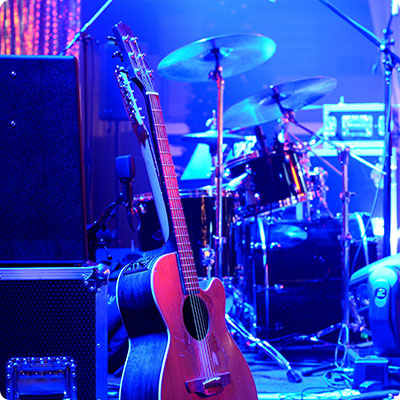My country is not a country, it's winter!
Thanks to exceptional snow conditions, the popularity of winter sports in Canada is palpable. The season generally runs from December to the end of March, and even longer in certain mountainous regions such as the Rockies in British Columbia and Alberta, or the Laurentian massif in Quebec.
Snow sports top the list, with some 300 ski resorts spread mainly across the west and east of the country, including the renowned Whistler Blackcomb and Sun Peaks (British Columbia), Sunshine Village, Lake Louise and Norquay (Alberta), and Tremblant and Le Massif (Quebec). The largest ski area is Whistler Blackcomb (over 3,200 hectares), the highest vertical drop in the country is Revelstoke (1,713 metres), and the highest altitude resort is Sunshine Village (2,730 metres). Experienced skiers can opt for off-piste skiing in the magical setting of the Chic-Chocs mountains in Quebec, or the must-do experience of heliskiing in the Rockies. Cross-country skiing is also very popular, as is snowshoeing, both of which are easily and inexpensively accessible in the country's regional and national parks. Then there's ice skating, which comes as no surprise when you consider how much of a field hockey fanatic Canadians are. They skate from an early age, and it's even said that they learn to skate before they can walk! For those who'd like to try their hand at it, there's no problem, as indoor and outdoor rinks are legion in Canada. And let's not forget the two most popular activities for visitors: snowmobiling and dogsledding. Many outfitters and tour operators offer these unique experiences on an all-inclusive basis, with cold-weather equipment available on request. Of course, a host of other winter activities are also on the program, including ice climbing, snowkiting, ice canoeing (yes, it exists!), telemark skiing and tubing.
In summer, a paradise for the outdoors
The wide-open spaces, the countless lakes and rivers, the majestic St. Lawrence, the Great Lakes and the oceans, not to mention the parks and reserves, are ideal for numerous outdoor activities.
You can get on your bike and set off on the Trans Canada Trail, a recreational path that stretches over 28,000 km from coast to coast, and even as far as the Arctic! Some sections are reserved for canoeing, while others can be explored by bike, hike, cross-country ski or even snowmobile. Hiking trails abound in all four corners of the country, satisfying both the contemplative and the sporty, and multi-day treks are available in unspoiled wilderness. Water is also an omnipresent element in Canada. Whitewater kayaking/canoeing and rafting are widely practised, notably on the Tatshenshini River in the Yukon, the Kicking Horse River in British Columbia and the Ottawa River between Ontario and Quebec, and multi-day expeditions are even organized by some agencies. You can also try your hand at canoe-camping, a popular activity in summer. And there's no shortage of mythical places in Canada, such as the Yukon River (Alaska and Yukon), the Mackenzie River (Northwest Territories), the Powell Forest canoe circuit (British Columbia), the Churchill River (Saskatchewan) or Jasper Park (Alberta), Quetico Park (Ontario), Algonquin Park (Ontario), de la Mauricie Park (Quebec) and Gros Morne Park (Newfoundland, kayak-camping only).
Of course, a host of other activities are available in Canada, including kitesurfing, surfing (the west coast of Vancouver Island is a surfing Mecca), sailing, scuba diving (with a special mention for Fathom Five Marine Park and its 20 or so shipwrecks in Ontario), rock climbing, aerial and via ferrata courses, canyoning, caving, parachuting and hang-gliding, mountain biking, horseback riding, golf.... And if you want to recover from all the excitement, take a moment to relax in the thermal baths of one of the country's many Nordic spas.
Teasing fish or game
Hunting and fishing are other popular activities. The famousoutfitting camps or hunting & fishing lodges manage a territory while offering their services. They offer à la carte stays for the more self-sufficient, as well as packages for expeditions - sometimes quite costly, depending on the destination - which must be booked well in advance, but they take care of everything: transport, accommodation, equipment and accompaniment by qualified guides.
For more information on species, seasonality and fishing and hunting zones, current regulations and purchasing permits, consult the website of the provincial or territorial wildlife ministry.
Competitions not to be missed
In addition to the country's professional sports teams, and the junior and university leagues that promote the next generation of athletes, Canada hosts a number of high-caliber sporting events throughout the year.
These include the many marathons held from coast to coast, the famous Ironman triathlons (Calgary, Mont-Tremblant, Muskoka, Ottawa, Penticton, Victoria) and the Grands Prix Cyclistes de Québec and Montréal (UCI World Tour). The country also plays host to car races such as theOntario Honda Dealers Indy Toronto (IndyCar) and the Canadian Grand Prix in Montreal (F1), major rodeos such as those in Calgary (Alberta), Morris (Manitoba) and St-Tite (Quebec), the Transat Québec-Saint-Malo transatlantic crewed race (every four years), not to mention the cream of world tennis, which gathers every year in Toronto and Montreal for theNational BankOpen. Soccer fans are reminded that Canada will be one of the three host countries - along with Mexico and the United States - for the FIFA Football World Cup in 2026.
Competitions don't take a break in winter - quite the contrary, as Nordic countries go. Among the great classics are dog sled races such as the prestigious Yukon Quest (Yukon), snowmobile races such as the Bonnechere Cup in Eganville (Ontario), the Grand Prix Ski-Doo de Valcourt (Quebec) and the Cain's Quest (Labrador), and the many ski and snowboard competitions that take over the resorts of Western and Eastern Canada. And for a complete change of scenery, don't miss the extraordinary sporting competitions of the Arctic WinterGames. The next edition will take place in Whitehorse (Yukon) in 2026.
On the side of the professional leagues
Here, ice hockey is not only the national sport, it's a veritable religion! In fact, it is said to have been invented in Canada in the 19th century. Since then, rinks across the country have been a hotbed of activity, and as soon as the NHL (National Hockey League) championship resumes, which brings together franchises from Canada and the United States, there are few who wouldn't be in front of the TV with family or friends, a cold beer in hand.
From the opening game in early October to the final in June, Canada lives to the rhythm of the North American games. In fact, it's in Montreal that the winners' names are engraved on the mythical Stanley Cup, the world's most prestigious award. And if there's one emblematic team in the League, it's the Montreal Canadiens. A venerable resident of the NHL, they are quite simply the oldest team in the world. Founded on December 4, 1909, it is also the most successful, with 24 Stanley Cups won.
Of the NHL's 32 member teams, seven share the limelight in this country: the Vancouver Canucks, Edmonton Oilers, Calgary Flames, Winnipeg Jets, Toronto Maple Leafs, Ottawa Senators and Montreal Canadiens. For those who'd like to see future NHL stars in action, the Canadian Hockey League (chl.ca/en) features 52 teams from Canada and 8 from the United States, divided into three leagues: the Quebec Maritime Junior Hockey League (QMJHL), the Ontario Hockey League (OHL) and the Western Hockey League (WHL).
Then there's Canadian soccer, which is very similar to American soccer except for a few rules. Canada has its own league, the Canadian Football League (CFL), in which its nine member teams compete: the British Columbia Lions, the Edmonton Elks (formerly the Eskimos), the Calgary Stampeders, the Saskatchewan Roughriders, the Winnipeg Blue Bombers, the Hamilton Tiger-Cats, the Toronto Argonauts, the Ottawa Redblacks and the Montreal Alouettes. The most successful team in the country is Toronto, with 17 Grey Cups (the last in 2017). The regular season runs from early July to early November, followed by the semi-finals and finals for the championship. College soccer is also very popular, with the U Sports network featuring every team in the country (usports.ca).
Alongside these two popular sports are soccer (with the Vancouver Whitecaps, Toronto FC - which won the MLS, the North American championship, in 2017 - and CF Montreal - formerly known as the Impact), baseball (with the Toronto Blue Jays) and basketball (with the Toronto Raptors, NBA champions in 2019, a first for a Canadian team).


















